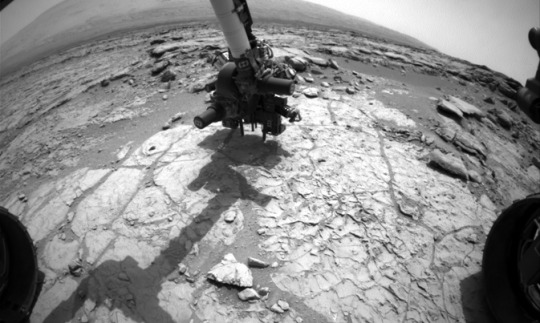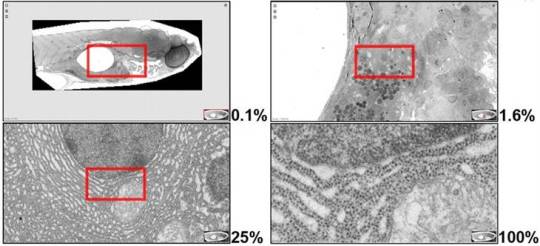A geologists take on the world as a whole, anything and everything I find....neat. I'll try to keep the rocks to a minimum (unless, you know, they're really cool). Please, feel free to ask me anything! Questions may or may not be related to the general theme of the blog. Death threats are welcome. I find them funny.
Don't wanna be here? Send us removal request.
Video
Russian asteroid blast; take it away Dr. Neil deGrasse Tyson!
0 notes
Link
So, were we so focused on 2012 DA14 that we completely missed this guy screaming in towards us?
0 notes
Link
I'd be willing to subject myself to rigorous testing on this subject...
0 notes
Link
This article sums up everything that was wrong with NASA's safety culture.
I work in what can be sometimes considered a hazardous environment (mine sites, in the wild, etc.), and as far as I'm concerned, if you haven't done everything you can think of to foresee and mitigate potential hazards, then you're being incredibly irresponsible. Especially when other peoples lives are on the line.
Granted, I don't work in space...but the same attitude applies.
0 notes
Photo
Great, but who's going to log that core? (Pick me! Pick me!)

Eagerly anticipating the Curiosity Mars Rover’s first drilling maneuvers. This will also be the first time any robot has drilled into rock to COLLECT SAMPLES FROM MARS! (via NASA - Curiosity Maneuver Prepares for Drilling)
941 notes
·
View notes
Photo
I want that bass....

60 notes
·
View notes
Video
youtube
Great video detailing Hurricane Sandy. But I'm not sure I completely agree with the anthropogenic climate change argument made at the end. Or at the very least, I'm not sure I agree with the assumption that CO2 is the culprit (which to be fair, they don't mention). I still have a hard time believing the very trace amounts of CO2 in our atmosphere is having that much of an impact on global temperatures when there are much more powerful factors in play. In fact, can someone please show me a scientific article where they show HOW CO2 affects climate? Seriously, I'd like to read it.
It just seems too easy these days to blame any "unusual" weather phenomenon on the "CO2" boogeyman. I guess my biggest worry is what happens if we take steps to "fix" things, and we end up screwing things up even more? Unfortunately, our civilization has a very long and sad history of doing exactly that. You hear talk about engineering a solution to climate change, such as dumping a hell of a lot of sulphur dioxide into the atmosphere to cool things down...now what happens when (not if) the Earth goes into another cooling cycle and we're already keeping the climate artificially cold?
Sandy's CT Scan, and Other Vital Images (by SciFri)
0 notes
Text
So I've been neglecting my tumblr blog for a while now, but I'm on here almost every day. So I decided I might as well do something productive and start posting again! Lets see if I can keep it up!
0 notes
Text
This is me at work almost every day. At LEAST once or twice a week anyway. Seriously, this is the best geology blog out there!
Studying 4.6 billion years of North America geology

Credit: 7cm47
66 notes
·
View notes
Photo

Who else thinks owning a Canon EOS 200000 Gigapixel camera would be cool? Make it so, future!
0 notes
Photo
Spoiler alert? How about WARNING! WARNING WARNING!

315 notes
·
View notes
Link
Rare admission from the "sky is falling" camp that maybe things got blown a little out of proportion...
1 note
·
View note
Photo
ponyleague:
Fight the Mammals!
Art by Benjamin Dewey

46 notes
·
View notes
Link
Gifford Miller collects vegetation samples on Baffin Island. (Credit: Photo courtesy of Gifford Miller, University of Colorado)
A new international study may answer contentious questions about the onset and persistence of Earth’s Little Ice Age, a period of widespread cooling that lasted for hundreds of years until the late 19th century.
The study, led by the University of Colorado Boulder with co-authors at the National Center for Atmospheric Research (NCAR) and other organizations, suggests that an unusual, 50-year-long episode of four massive tropical volcanic eruptions triggered the Little Ice Age between 1275 and 1300 A.D. The persistence of cold summers following the eruptions is best explained by a subsequent expansion of sea ice and a related weakening of Atlantic currents, according to computer simulations conducted for the study.
The study, which used analyses of patterns of dead vegetation, ice and sediment core data, and powerful computer climate models, provides new evidence in a longstanding scientific debate over the onset of the Little Ice Age. Scientists have theorized that the Little Ice Age was caused by decreased summer solar radiation, erupting volcanoes that cooled the planet by ejecting sulfates and other aerosol particles that reflected sunlight back into space, or a combination of the two.
“This is the first time anyone has clearly identified the specific onset of the cold times marking the start of the Little Ice Age,” says lead author Gifford Miller of the University of Colorado Boulder. “We also have provided an understandable climate feedback system that explains how this cold period could be sustained for a long period of time. If the climate system is hit again and again by cold conditions over a relatively short period — in this case, from volcanic eruptions — there appears to be a cumulative cooling effect.”
“Our simulations showed that the volcanic eruptions may have had a profound cooling effect,” says NCAR scientist Bette Otto-Bliesner, a co-author of the study. “The eruptions could have triggered a chain reaction, affecting sea ice and ocean currents in a way that lowered temperatures for centuries.”
Click title to read more.
144 notes
·
View notes










